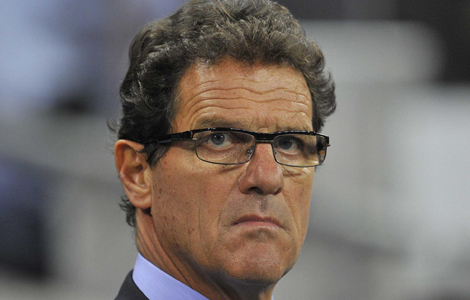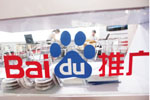US firms prepare to expand business in China
Updated: 2012-02-17 09:39
By He Wei (China Daily)
|
|||||||||||
SHANGHAI - A majority of US companies are bullish about China's economic outlook and will expand investment in 2012 despite rising operational costs, a new survey showed.
According to a poll conducted by the American Chamber of Commerce in Shanghai, 78 percent of US firms said they were profitable in the past year, and 77 percent said they plan to increase investment in China.
A total of 315 companies participated in the chamber's annual survey with industry in manufacturing, retail and services.
Most companies surveyed have operations in Beijing, Shanghai and the Yangtze River Delta region, but a growing number have also extended their footprints to other coastal and inland provinces.
The report shows 80 percent of companies registered a year-on-year revenue rise, with 35.7 percent posting double-digit growth. Half of the firms saw improved operating margins.
While these figures are slightly below the findings in last year's survey - partly affected by the ongoing financial crisis - about two-thirds of the companies said sales growth in China exceeded that of their operations worldwide.
More than 14 percent reported that their businesses in China accounted for 30 percent of more of global sales, with 4.8 percent saying China was contributing a lion's share of the revenue pot.
The results also suggest that American companies in China are increasingly driving US exports to serve the Chinese market, meanwhile supporting production and jobs at home.
Nearly two-thirds said they imported parts or finished goods from the US into China. That translates into 32 percent of companies' China sales by value. Consequently, one-third reported China is a "significant" source of profits for their US head offices.
"I am pleased to see that our members reported strong financial performances in 2011," said Brenda Foster, president of the American Chamber of Commerce in Shanghai. "But there are challenges facing us and I look forward to addressing these issues with both the US and the Chinese governments."
Among the many challenges, rising costs take top spot, displacing human resources constraints atop the business challenge rankings for the first time since 2006. As a result, 91 percent of survey respondents say soaring costs have hindered their businesses.
Retaining talent and fierce competition from domestic and international rivals are the other two major concerns. Most respondents identify Chinese private companies, followed by foreign firms, as the source of the largest surge in competition.
Despite the hurdles, the "in China, for China" trend continues to be strong with US firms demonstrating their long-term commitment to strategic planning in China. Seventy-one percent of companies responding this year said they sell and support products and services uniquely designed for the China market.
"China has evolved from an 'emerging' market into a 'mature' market, so to boost their competitiveness companies must localize their operations and offerings," said Kent Kedl, managing director of Greater China and North Asia branch of Control Risks, a consulting company that helped compile the report.
US-based clothing retailer Gap is looking to triple its outlets in China in 2012, said Jeff Kirwan, managing director of the company's China branch.
"We plan to add 30 more stores from the current 15, and our presence will reach 10 cities by the end of the year," Kirwan told China Daily.
With business focus on key cities, namely Beijing, Shanghai and Hong Kong, Gap is looking to inland cities such as Chongqing and Chengdu. Kirwan said the company has a heavy investment plan in China and the country will be its largest growth vehicle in terms of both sales and investment.
Despite forecasts that China's economy will slow, General Motors China is eyeing doubling its sales volume to 5 million units over the next five years, said president and managing director Kevin Wale.
He said the firm has set aside 1 to 1.5 billion dollars each year to boost capacity in the country. GM managed to control costs by extending to second- and third-tier cities.
Related Stories
China market growing for US companies 2011-08-18 09:39
Can US Companies Succeed in China? 2009-10-22 09:04
US company embraces ties to China 2011-12-16 07:42
US companies upbeat on China: survey 2009-10-09 08:15
- US firms prepare to expand business in China
- Exports face difficult outlook in Q1
- Delegations sign record-setting soybean deals
- FDI drops over EU debt crisis
- Foreign real estate firms exiting capital
- China goes for the gold
- China trims US Treasury holdings for third month
- Dumping case harms ceramic makers









